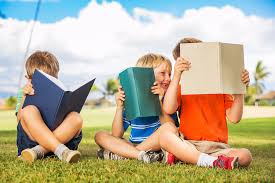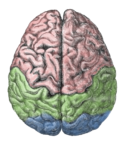Some online stories that are read to the child (PreK-3) -- Parents, don't go anywhere! Stay right there with your child and enjoy:
Geared for Parents and Teachers: Kids learn to read best, not when they complete worksheets and drills, but when they see ideas in the world they want to discover, and they realize reading is one powerful way to help them do this. This blog helps provide them intriguing books and science/world ideas, encourage their discussions, and hopefully inspire them to dig deeper.
Monday, June 13, 2016
Online Storytime for PreK-Grade 3, Online Stories
It's well-researched that one of the very best ways to encourage children is to read with them. Whatever the method -- child reading to adult, adult reading to child, or a mix of both -- the bottom line is that the experience should be one of joy for the child, not stress. Once a new reader senses stress as a part of the reading process, it becomes very difficult to change a child's mind that reading is not stressful.
Thursday, May 19, 2016
Climate Changing, continuing
Photos showing animals and plants and how they will be impacted by climate change. Photos and sidebars are clear and engaging:
Climate change and animals/plants
Remember, these photos are only the beginning. To enhance reading, get questions going from the child, then let him (or you) read the description posted, along with further research. Reading is all about gaining knowledge -- sometimes just for the fun of it.

Climate change and animals/plants
Remember, these photos are only the beginning. To enhance reading, get questions going from the child, then let him (or you) read the description posted, along with further research. Reading is all about gaining knowledge -- sometimes just for the fun of it.
Monday, May 16, 2016
Action-Packed Reading
Anthony Horowitz's Alex Rider Collection is a great read for students who want thrills while reading. Fifteen year old Alex, an orphan in England, is brought into the government spy service, M16, and he runs into constant, nail-biting situations as he goes after bad guys, near and far. There are 10 novels an 5 graphic novels.


Monday, May 9, 2016
Deserts
Here's an interesting half-hour video on deserts -- life on them for animals and plants, life on them for human animals.
The Desert
Remember, to just let a young person watch a video is only the beginning of enhancing his/her reading skills. Discussion must occur afterwards (if not during), and follow-up -- either by searching for additional articles on the web or books in the library -- is what makes reading to the child a natural process.

The Desert
Remember, to just let a young person watch a video is only the beginning of enhancing his/her reading skills. Discussion must occur afterwards (if not during), and follow-up -- either by searching for additional articles on the web or books in the library -- is what makes reading to the child a natural process.
Tuesday, May 3, 2016
Reactivating Blog
This blog has been on hiatus for some time. Now it's back -- at last.
It's focus now will be much more on reading education, although if other topics appear (esp in the news), I may deviate.

It's focus now will be much more on reading education, although if other topics appear (esp in the news), I may deviate.
Specific interest of this site is to help parents and teachers to motivate children and young adults to read -- for life, for learning, for fun.
Monday, March 4, 2013
Here's Hoping Common Core Keeps Its Novel Edge
An award-winning principal who wrote a book all about the positives of Common Core is beginning to have second thoughts. It appears that some districts and/or states apparently view Common Core in much the same way as No Child Left Behind. It's a complete shame. Common Core promises invigorating classrooms where students delve into real-world projects that encourage them to use all their academic skills to solve the project. This is so like the model John Dewey advocated 50 years ago, and is much the reason I entered education. So now this worries me -- within a one or two-year turn around, can our states truly accept Common Core for all the excitement and dynamic learning it can provide? Exactly how will your state/district translate Common Core for your child? After all, isn't a riveting classroom the best one to learn in?
Sunday, March 3, 2013
Brain-Based Learning --- How Amazing It All Is
Okay, the title I gave this post is really for me. I had heard of brain-based learning a good 15 years ago, and just figured it was another "pop" reading intervention that would soon fade. What I did not know was brain-based learning was based on the fMRIs, new to the field of learning in those days but oh! what it allowed researchers to do. My own stupidity and loss -- I didn't try to educate myself on the work, so now, 15 years later, I came across two books on the topic and became mesmerized. Maryanne Wolfe's Proust and the Squid, a professor from Tufts, takes an educational view toward the field; I found her book enthralling, with detailed research that answered so much. Stanislas Dehaeine's Reading In the Brain is more science-based, but even as I floundered on some of his explanations, I was just as riveted to his words.
Subscribe to:
Posts (Atom)
